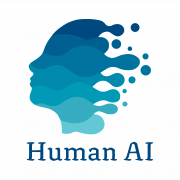The power of self-knowledge: AI and human identity
AI at the service of self-knowledge
As humans we are rational beings: we know, we know ourselves and we have consciousness. Three areas in which artificial intelligence only performs one: knowledge, but can AI know us better than our own mother? Even more, can AI know us better than we know ourselves?
Deep Blue, the machine that managed to beat the renowned master Kasparov in the game of chess, possessed a vast understanding of chess, but lacked the ability to perceive itself. AlphaGo, the creation of DeepMind, has achieved supremacy in various complex strategic games, exhibiting dazzling knowledge in those fields, but lacking understanding of other aspects and possessing no self-awareness. Dall-E 2, the artificial intelligence developed by OpenAI, stands out for its broad algorithmic domain, however, it has no self-awareness about it.
We can say then that AI can know more than humans, but always objectively, algorithmically and partially; not humanly and holistically. Knowing a lot does not imply being aware of your being as a person. So, could AI help us to know ourselves better? It can help us to enhance our self-knowledge of “how I am”: skills, aptitudes, capabilities, personality traits, competencies, etc. but it will never be able to access who I am, a task that is up to each person to discover for themselves.
Knowing oneself is the starting point for personal growth and integral development. Through self-knowledge, people can understand their strengths, weaknesses, values and motivations. This enables them to make more informed decisions, set realistic goals and build more authentic and meaningful relationships.
Self-knowledge is a basic and continuous learning process with respect to the rest of possible learning, precisely because it treats the subject that knows as an object of itself. Is not the camera prior to the photograph, the mold to the adobe, the painter to the mural?
“The main learning difficulty and the main problem of humanity could be to develop a foundation of education aimed at gradually and effectively finding out who we essentially are. Because, if we don’t know this, how are we going to recognize what we want or why we do things?”
Agustín de la Herrera Gascón, PhD in Education. Professor at the Universidad Autónoma de Madrid -UAM.
Self-knowledge for action
Self-knowledge is a basic condition to be able to make ethical decisions, that is, to decide as humans, which is still a strange way for AI. Knowing oneself better as a person implies being able to decide better and therefore act ethically and responsibly according to who we are. Self-knowledge is an ongoing process that involves being in tune with our thoughts, emotions and actions. By knowing our strengths and weaknesses, values and goals; we can become authentically ourselves and therefore make decisions in coherence with our identity.
Fostering self-knowledge in and from one’s own education, from the classroom, from one’s own subject; goes beyond the accumulation of academic knowledge and technical skills; students are given the opportunity to explore their identity, develop greater self-awareness and the possibility to build a solid foundation for continuous learning and development; in addition to being able to facilitate them to identify their true motivations, make decisions aligned with their values and be able to find meaning and purpose in life.
Request our free demo of Human AI, an innovative tool at the service of self-knowledge, evaluation and personal development.





